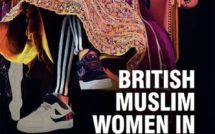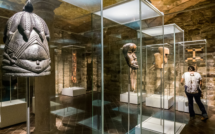
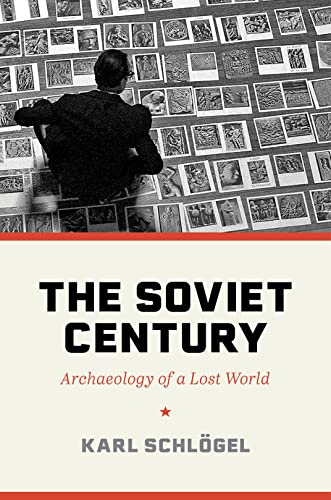
The Soviet Century: Archaeology of a Lost World
By Karl Schlӧgel
Publisher: Princeton University Press
Recommended by Oksana Ermolaeva
The Soviet Century: Archaeology of a Lost World, a formidable collection of 59 essays, is a reprint of the book originally published in 2018 in Munich. Karl Schlӧgel starts with the popular concept of “Soviet civilization,” which was first introduced by Stephen Kotkin in 1995 and which Schlӧgel interprets as a “longstanding lifeworld.” The latter further defines the Soviet Union as a system that “was not only a political system with a datable beginning and an end, but a form of life with its own history, maturity, decline, and fall” and paradoxically as an “empire whose time had run out” but whose “vestiges will persist—as physical traces and on the mental maps of inhabitants of what is now postimperial, postcolonial world.” However, the author could not know, that only a few years after the book’s first publication, “the Soviet” would resurrect in a much more macabre form, marking Russia’s dramatic comeback to Stalinism—and even worse.
Schlӧgel calls his method “archaeology,” claiming that this approach “takes the territory of a former empire as its field of operations. It then inspects and secures various traces; it sets up probes and carries out excavations: literally and metaphorically.” Under this general framework, kaleidoscopic shifts about the subject matter swirl the reader into a whirlpool of Soviet life and culture through a cultural history optics. The book represents a journey through the multiplicity of interiors, landscapes, and public spaces such as forced labor construction sites, kommunalkas, hostels, and Berezka shops. The “lifeworlds” of the Russian revolution, Soviet industrialization, and Khrushchev’s thawing are portrayed through an exploration of museums, chest badges, tattoos, graffiti, private galleries, cookbooks, and doorbells and using a wide range of visual materials from the archives. While some of these spaces and objects are well known to historians of Russia, they are approached here through a novel cultural and aesthetic lens, for example through the case of the infamous Lubyanka building, which has been turned into the “museum of Soviet civilization.” Other spaces, such as Soviet databases, including those pertaining to banned books collections and even the crematorium, constitute novel paths into the topic. The author’s journey across the USSR is reflected through rich descriptions of his lived encounters with Soviet dissidents and war veterans and his multiple meetings with “ordinary people:” a tractor driver, a conductor, a helicopter pilot, and a refugee.
The emergence of this book in our intellectual landscape is timely, as we seek to better understand Russia in an era when systematic political, economic, social, and even cultural approaches have failed to explain or predict the current resurrection of the “Soviet Leviathan.” Indeed, perhaps “the devil is hidden in the details,” and by diving yet again into these minute but culturally rich details of Soviet banal routine, spiritual life, and rituals, we can make a step forward in our comprehension of why the dark side of “Soviet civilization” keeps reemerging again and again.
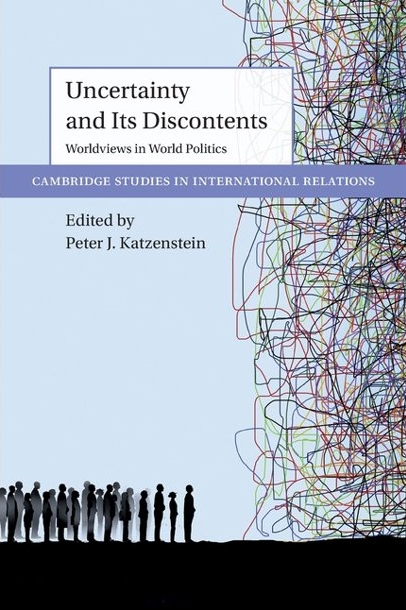
Uncertainty and its Discontents: Worldviews in World Politics
Edited by Peter Katzenstein
Publisher: Cambridge University Press
Recommended by Arina Rotaru
Peter Katzenstein’s edited collection, entitled Uncertainty and its Discontents: Worldviews in World Politics, is the first major study of worldviews in international relations. Drawn from the German word Weltanschauung, the term “worldview” retains an unconscious perspective that is embedded in “local and temporary sets of beliefs about how the world works.” In the aftermath of unprecedented crises such as COVID-19, the book claims that post-Newtonian perspectives and experimentations are better suited to explore territories of world politics marked by uncertainty. Yet, the volume also makes readers aware of the lingering importance of Newtonian worldviews, substantialism, and Weberian individualism, in contrast to other opportunities opened by relational approaches and quantum science. Understanding worldviews through forms of experimentation rather than survey experiments, as is common in international relations, can clarify, the book argues, contemporary matters related to nationalism, the Jewish diaspora, the tensions between liberals and conservatives, anarchic politics, and the refashioning of the ways in which our identities are pre-determined by states. The book can be of use in understanding contemporary world crises, including European matters.
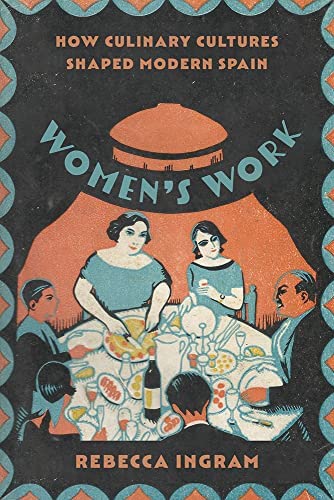
Women’s Work: How Culinary Cultures Shaped Modern Spain
By Rebecca Ingram
Publisher: Vanderbilt University Press
Recommended by Brittany Kennedy
With a contemporary gastronomy famous for its innovation, Spain has almost become synonymous with culinary modernism. However, Rebecca Ingram’s insightful and innovative book shows that Spanish culinary techniques and modernity, often associated with male chefs using molecular gastronomy, actually originates from what she calls “women’s work” during the early twentieth century—a time in which Spain struggled with its “modern” nationhood. Ingram’s argument centers on the hard-to-define concept of women’s work within feminist theory and weaves a narrative about how culinary practice tells us much about liberalism, class struggles, and social concerns, as well as about how nutrition and the body contributed to competing ideas about Spain as a “nation” in the decades leading up to its Civil War.
Beginning with chapters about Emilia Pardo Bazan’s and Carmen de Burgos’s cookbooks, Ingram shows how the former participated in a type of culinary nationalism while the latter used women’s contributions to the domestic sphere to engender larger conversations about female labor and labor reform. Although these two women’s aims were decidedly different, what Ingram makes clear is that “a Spanish sociology of food reveals that women are at its center” (45). Thus, later chapters about the male-dominated hospitality industry show that, while women may have been officially excluded from the discourse about liberalism and modernity in pre-Civil War Spain, culinary cultures show us how women nonetheless participated in these conversations in profound ways. Ingram’s monograph presents a bold contribution to modern Iberian studies that has us look anew at writers and ideas whose contributions have been influenced by a post-Franco historiography that seeks to “preserve” Spain. Ingram’s nuanced approach to these culinary practices further contributes to a much needed body of cultural theory that not only explores but, even more importantly, interrogates the construction of Spanish nationhood in the twentieth century, giving us tools by which we can explore that construction in the present day.
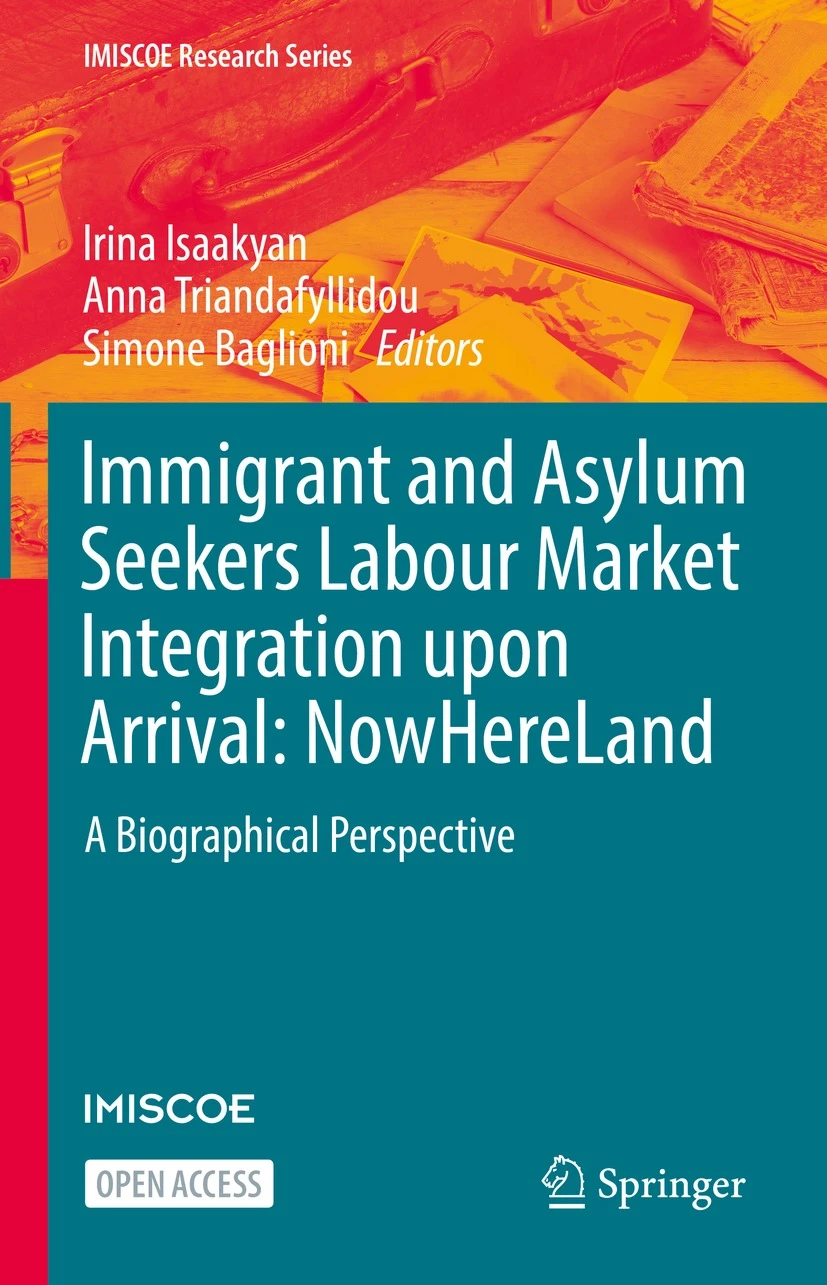
Immigrant and Asylum Seekers Labour Market Integration upon Arrival: NowHereLand. A Biographical Perspective
Edited by Irina Isaakyan, Anna Triandafyllidou, and Simone Baglioni
Publisher: Springer (Open Access)
Recommended by Angela Cacciarru
Listening to migrants and asylum seekers offers a unique way of examining their movements and understanding the profound impact their journey has on their lives. Immigrant and Asylum Seekers Labour Market Integration upon Arrival: NowHereLand is a must read book that allows a prismatic point of view onto the lives of migrants, their bodies, trajectories, and personal journeys, unfolding in what Campbell would have called “the hero’s journey,” a transformative journey that does not necessarily have to end with the return of the migrants to their home country. Through the innovative framework of interpretive biography, the daily encounters of the book’s authors with migrants and asylum seekers allows for an exploration of the realities of labor market integration across different European countries and the social forces that shape migrants’ agency and integration in that market. Key to the understanding of the nuances of these processes and their variations is the author’s use of “epiphanic passages” as a lens through which to understand the challenges migrants face in their lives. Indeed, what the authors define as an “epiphany”—a transformation in the migrants’ identity and perspective on integration— serves as the “turning point” that ignites a process of decision-making. From the powerful voices of the migrants present throughout the book emerges a strong interrelation between the challenges that they encounter every day, the profound impact these hardships have in the way they perceive their own agency, and their “identity boon,” that is, the new understanding they have of themselves and of their place in a European Union to which they belong.
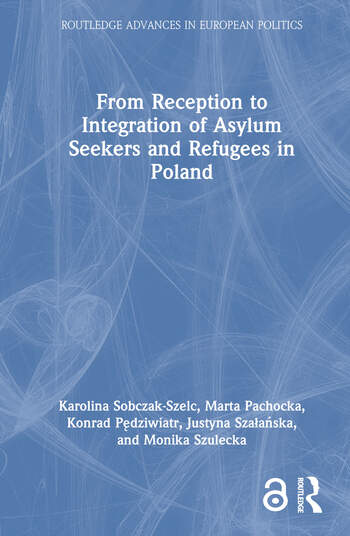 From Reception to Integration of Asylum Seekers and Refugees in Poland
From Reception to Integration of Asylum Seekers and Refugees in Poland
By Karolina Sobczak-Szelc, Marta Pachocka, Konrad Pędziwiatr, Justyna Szałańska, Monika Szulecka
Publisher: Routledge Books
Recommended by Vanja Petričević
The book provides a timely analysis of the multidimensional nature of asylum seekers’ and refugees’ circumstances in an often understudied context of Central and Eastern Europe. The vast literature on asylum seekers and refugees has overwhelmingly focused on countries of Western Europe, but this book illustrates the importance of focusing on once “transit” countries as they emerge out of the shadows and carve out their own spaces within the larger debate on forced migration. Thus, this book sheds light onto the nuanced nature of navigating this debate within a post-communist context yet the book’s timeliness is also linked to the unprecedented levels of forced migrants from Ukraine that Poland has hosted in its recent history. The authors also do not shy away from briefly pointing out that “Poland is a country of contrasts” (3), which is also exemplified in the ways Poland has responded to different groups of forced migrants.
Given the multifaceted landscape of forced migration, the authors systematically and skillfully unpack the maze of forces at different levels of analysis that make up the country’s forced migration governance. They thoughtfully situate Poland within the wider context, considering both external influences and domestic circumstances that have led to the creation of Poland’s institutional frameworks for the protection of persons fleeing political violence and persecution. The authors’ analysis of this topic takes the reader on a journey through different segments of society illustrating different imagined opportunities while, at the same time, underscoring the glaring challenges that asylum seekers and refugees face. The authors shed light on the political stance toward asylum seekers and refugees but also on how the circumstances on the ground shape barriers and prospects in their access to education, housing, healthcare, labor market, and citizenship. This book offers a well-rounded engagement with the topic of forced migration through various sources including rich, primary sources. Noteworthy are the many illustrative excerpts from interviews with forced migrants highlighting their own perceptions and experiences with forced migration governing mechanisms. Thus, the authors’ quest to bring Poland from the margins to the mainstream academic discourse on forced migration will be valuable to both policy-makers and scholars alike.
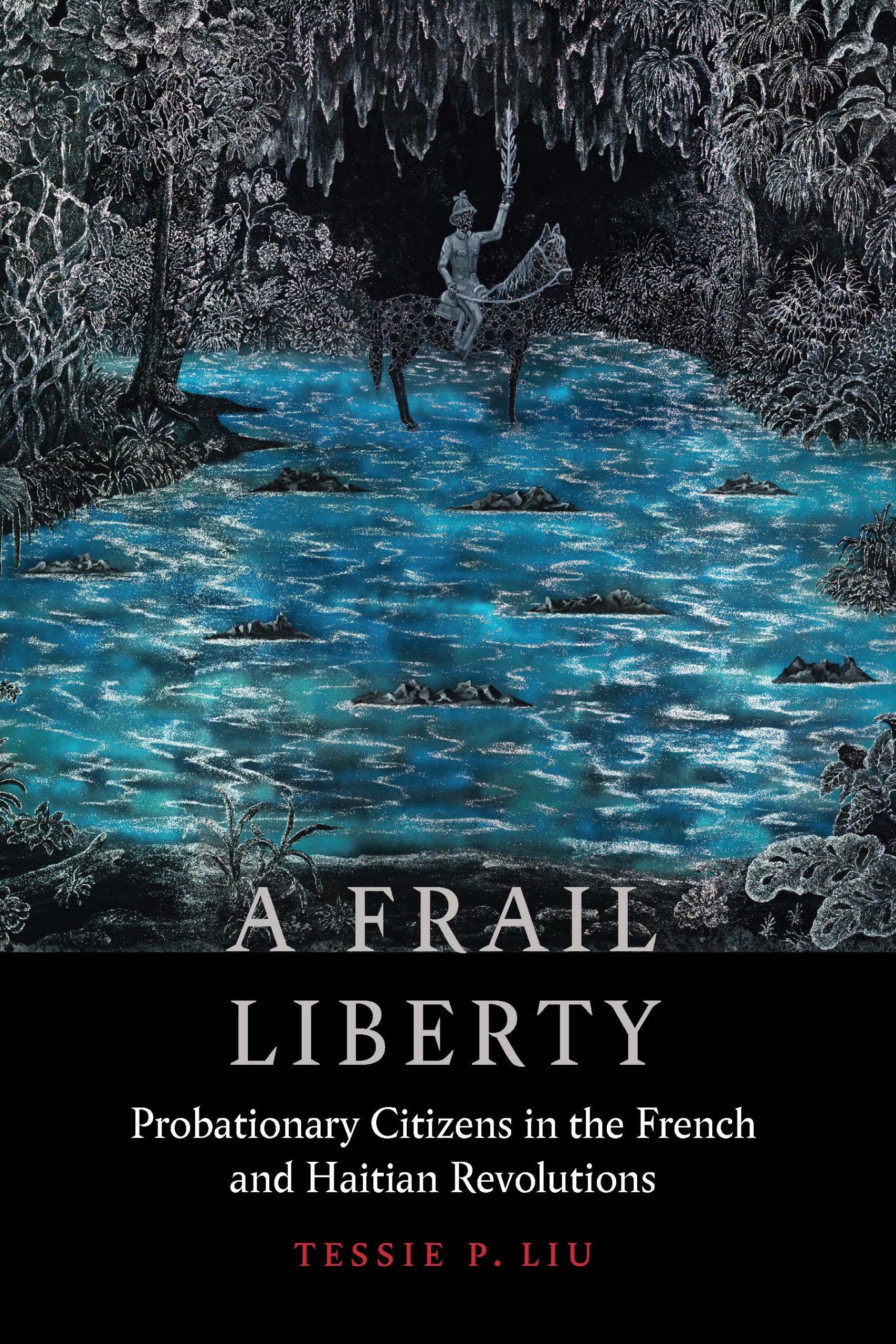 A Frail Liberty: Probationary Citizens in the French and Haitian Revolutions
A Frail Liberty: Probationary Citizens in the French and Haitian Revolutions
By Tessie P. Liu
Publisher: The University of Nebraska Press
Recommended by Hélène B. Ducros
In her latest book, Tessie Liu traces the history of the Société des Amis des Noirs (which would later become the Société des Amis des Noirs et des Colonies) since its inception in 1788. In her genealogy of the organization—the first formal French abolitionist group—Liu focuses on the ways in which differentiated conceptualizations of citizenship emerged at the end of the eighteenth century and the beginning of the nineteenth century out of the Atlantic revolutions, from which were also derived different approaches to race and understandings of political belonging. Liu uses the Société as a filter to examine issues such as voting rights and color-blindedness in the post-emancipation context of post-revolutionary Atlantic. For her, the organization remains an oddity in the history of European and American abolitionism. Indeed, she lays out striking contradictions in the ideological foundation of the Amis, as the organization was at the same time anchored in early abolitionist rhetoric and in an elitist understanding of equality. In particular, the author highlights how the tension emanating from the consideration of “merit” as a source of political rights swayed the Société’s mission away from anti-slavery motives. Liu engages in this “meritorious equality” through a detailed narrative of the intellectual debates not only at the heart of the Société but in society more generally, notably through her account of the evolution in and responses to the thought of various characters such as Emmanuel-Joseph Sieyès, the abbé Grégoire, or Jean-Baptiste Say, among others. These political thinkers’ positioning vis-à-vis race, “qualification,” privilege, citizenship, equality, and the slave trade also lead to a clearer grasp of the different (racialized) categories of access to citizenship rights, for example across groups such as “free colored elites” or “wealthy free men of mixed ancestry.” The book gives readers all the necessary tools to intellectually resolve the main inconsistency in an organization that in the end “oddly promoted racial equality at the expense of abolition.” Richly documented and thoroughly researched, this volume will bring together seasoned scholars and students of French colonial history and postcolonial studies, as well as historians of the Atlantic world.
Published on February 21, 2023.

